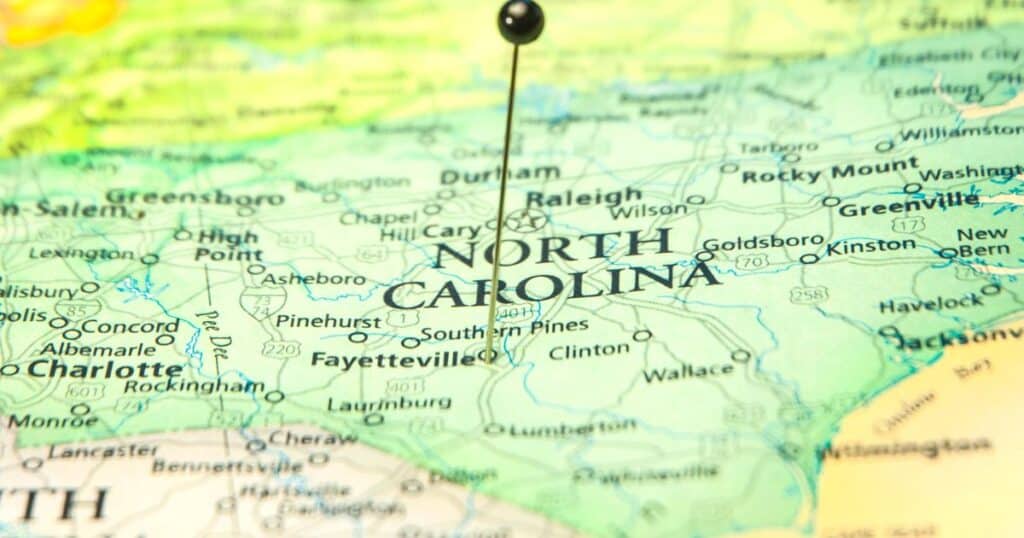April 20, 2024, will mark not just another regular entry into the calendars of North Carolinians, but a historic day as the Eastern Band of Cherokee Indians (EBCI) opens the first legal marijuana dispensary in the state near Asheville.
This development isn’t just about the availability of cannabis for adult use, but it signifies a voice for sovereignty and the progression of cannabis from a controversial drug to a medicine.

The conversation around cannabis has shifted dramatically in recent years, reflecting a broader societal understanding and acceptance of the plant’s therapeutic properties. The recognition of its medicinal benefits has propelled its legalization in various forms across the United States. North Carolina’s move echoes a global trend where cannabis is not just a recreational pleasure but a legitimate tool for managing pain, treating illnesses, and improving overall well-being.
The distinction between a medical market and an adult market sparked a work session last week. The meeting focused on Tabled Ordinance No. 63, aiming to modify Cherokee Code Chapter 17 from ‘Medical Marijuana’ to ‘Cannabis’ to permit adult use for people 21 and up, reports TheOneFeather.
While the new dispensary near Asheville is set to open as a general market establishment—catering to all adults aged 21 and above—its historic significance lies in the EBCI’s recognition of cannabis as a plant integral to their sovereignty and a health resource for their community.
By opening its doors to the general public, the EBCI isn’t just making a statement on the economic power of this growing industry but underscoring the inclusivity of marijuana that extends beyond tribal members.
The Progress of Policy and the Tribal Vote
The road to cannabis legalization and the establishment of its first dispensary in North Carolina wasn’t an overnight transformation. It was the culmination of progressive policy-making and a historic vote that exemplifies the democratic muscle within the EBCI community.
A decisive referendum in 2023 saw a majority of tribal members supporting the legalization of cannabis for adult use. The members’ endorsement of this legislation is a testament to the careful consideration and transparent deliberation by the tribal council, heavily involving its community in the decision-making process.
This transparent, community-driven approach stands out as a stark contrast to the opaque policy formations often witnessed in non-tribal governance settings.
Employment and Economic Opportunities
The budding marijuana industry isn’t just about the availability of a controlled substance but about economic opportunities and employment growth. The hemp industry provides a glimpse of what the future might hold, and the cannabis market is poised to grow exponentially with the EBCI’s plunge into the industry.
Amidst concerns over employment opportunities, has already attracted over 1,400 job applications said Lee Griffin, Qualla Enterprises human resources director, confirmed the opening date to Tribal Council during a work session on Wednesday, Feb. 28 reported by TheOneFeather. This shows how the job market is looking up, all set to welcome the skilled workers needed to keep things running smoothly.
Currently, Qualla Enterprises, LLC has a team of 69 people – with 74% being EBCI tribal members. And at the cannabis farm in Tsisqwohi (Birdtown), a whopping 91% of the employees are EBCI tribal members.
“We’re really proud of that,” Griffin shared with the Tribal Council last Wednesday. “And we plan to keep that going as we move forward.”
“We’ve been working with two models – medical and adult,” Griffin explained. “For now, we’ve been pretty cautious with the medical side, aiming for about 78 positions across 23 different job titles.”
The numbers jump significantly when looking at the adult model. “If we expand to an adult market, the hiring plan changes a lot. It’s around 350 positions. So, we’re aiming to tap into the adult market on day one.”
Furthermore, the EBCI’s commitment to employment diversity and the priority given to tribal members in the hiring process sets a standard for inclusive growth strategies. The tribe’s focus on local employment and economic development within its community sets an example for responsible and ethical business practices within the cannabis industry.
Navigating the Legal and Logistical Hurdles
Opening the dispensary isn’t without its challenges. Cannabis sales remain illegal in the State of North Carolina outside of tribal lands. This discrepancy between state and tribal law led to careful planning and establishment of a system that ensures safe access and navigates the legal complexities involved in selling a substance that remains illegal in the state.
Transportation logistics, security measures, and regulatory compliance are some of the key areas that the EBCI has diligently worked on. The tribal council has engaged in discussions with local law enforcement and authorities to manage the sale of cannabis responsibly, underscoring their commitment to maintaining public health and safety.
A Renewed Focus on Economic Development and Sovereignty
The opening of the first cannabis dispensary on Cherokee land is emblematic of a new chapter in economic development and sovereignty. It signifies a turning point where indigenous tribes not only take control of their economic futures but also assert their rights to manage their internal affairs, including the medical care and treatment of their people.
The revenue from the dispensary, the first in the state and facing no competition, is poised to make a substantial contribution to the tribe’s economic health.
This presents a significant revenue opportunity for the tribe, potentially paving the way for enhanced community services and supporting various developmental initiatives. The EBCI’s dedication to its members’ welfare and the broader community through cannabis sales demonstrates a forward-thinking approach to governance and economic security.

The launch of North Carolina’s first cannabis dispensary set to open near Asheville isn’t just about the availability of a controversial plant; it is a profound statement on health sovereignty, economic development, and community inclusivity. The EBCI has set a precedent for other tribal nations and states to follow, showing that cannabis can be an avenue for progress and prosperity when handled with care and intent.
The impact of this momentous decision goes beyond the economic and medicinal realms. It speaks to the rights of indigenous communities to determine their own paths and futures. It is about providing a legal and safe space for a substance that has been unfairly stigmatized, recognizing its potential to heal and unite. It paves the way for a more open, understanding, and democratic approach to policymaking, one where the communities most affected have a voice.
The ripple effects of this move in North Carolina may not be immediately apparent, but its resonance will be felt far and wide. As the EBCI takes a collective step towards cannabis normalization, it is a time for reflection on the past, but more importantly, a time to look forward to a future where such progressive measures lead to societal transformation and progress.

















